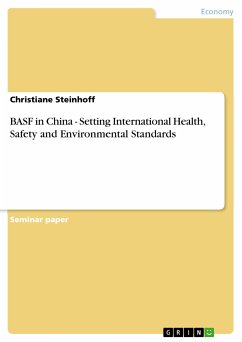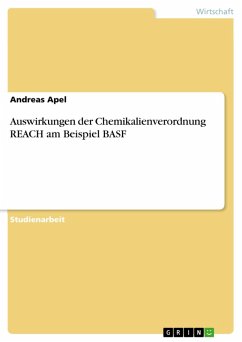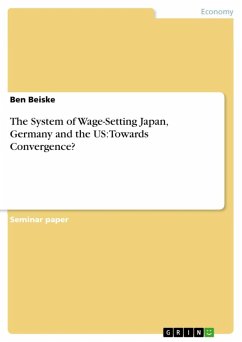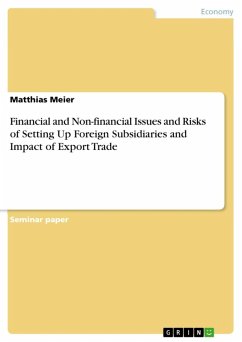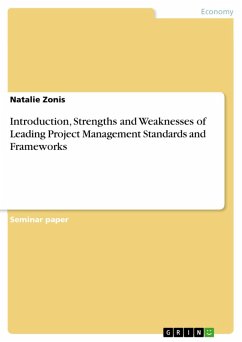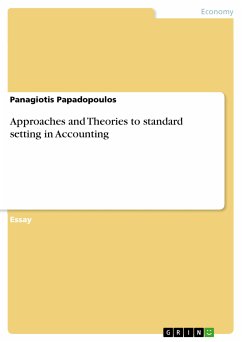Seminar paper from the year 2006 in the subject Business economics - Business Management, Corporate Governance, grade: 1,0, Euro-Business-College Bonn, language: English, abstract: As soon as one has forgotten the latest news about some tragic accident in some coal mine in China with hundreds of injured workers and dozens of casualties, there are other bad news from far east talking about the contamination of rivers following explosions in one of China's numerous chemical plants. At first glance, these incidents might seem to be a simple consequence of the People's Republic's rapid economic growth; people are forced to work harder and longer hours and machines are operated at full capacity. Besides, safety and environmental regulations are rather loose in China compared to a country like Germany and oftentimes local officials tend to bend the already loose rules in order to create growth. It is estimated that more than 1,600 German companies have settled in China in order to position themselves in time in an enormous market and in order to benefit from the Republic's booming economy with annual growth rates of 7 - 8 % and overall low investment costs and.1One German multinational sticks out from the crowd of these German enterprises rushing into the Chinese market not only for the volume of its overall investment, but also for its strict health, safety and environmental (HSE) policies that go far beyond existing regulations - BASF. The company's joint venture with SINOPEC, one of China's biggest chemical companies, is its largest single investment in Asia featuring one of its most modern production sites. In this paper I will give a short overview of BASF's HSE policies and the current environmental and social situation in the People's Republic of China before describing the joint venture of BASF and SINOPEC in consideration of environmental protection and the situation of the work force employed by the two chemical giants.
Dieser Download kann aus rechtlichen Gründen nur mit Rechnungsadresse in A, B, BG, CY, CZ, D, DK, EW, E, FIN, F, GR, HR, H, IRL, I, LT, L, LR, M, NL, PL, P, R, S, SLO, SK ausgeliefert werden.
Hinweis: Dieser Artikel kann nur an eine deutsche Lieferadresse ausgeliefert werden.

